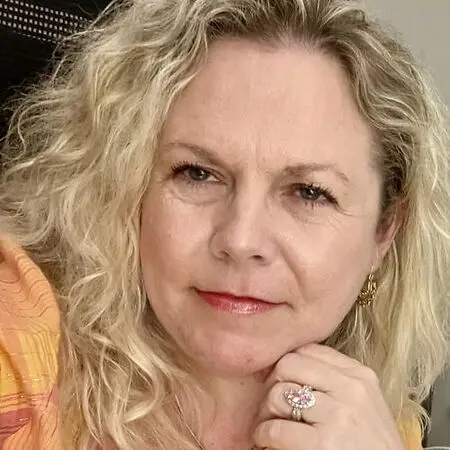Leva Talton, LCSW

Leva Talton, LCSW, is a licensed clinical social worker and a dedicated mental health professional with over 10 years of clinical experience. She currently serves as a psychotherapist at Premier Community HealthCare, where she specializes in trauma therapy, including EMDR (Eye Movement Desensitization and Reprocessing), and works with individuals navigating a wide range of mental health challenges. Leva is also a Doctor of Social Work (DSW) candidate at the University of Kentucky, where she is focused on leadership in social work and systems-level change. She holds a Master of Social Work from Columbia University and has completed clinical training across various settings, including military-focused care, addiction recovery, and outpatient mental health services.
Throughout her career, Leva has been committed to empowering individuals and advocating for systemic improvements in mental health care. Her academic and clinical work often highlights social justice issues, such as gender pay inequity, DEI challenges, systemic and institutional racism, reproductive rights, and the treatment of the homeless and severely mentally ill populations. She has also earned recognition for her leadership potential, including membership in The National Society of Leadership and Success.
Outside of her professional work, Leva practices self-care through breathwork, mindfulness meditation, hot Pilates, and hot yoga—tools she also shares with clients to promote wellness and resilience. She believes in leading with authenticity, meeting people where they are, and building strong rapport to create meaningful change in the lives of those she serves.
• Licensed Clinical Social Worker
• University of Kentucky
• Member of The National Society of Leadership and Success
• People Committee
What do you attribute your success to?
I attribute my success to the power of perseverance in the face of adversity. I have overcome many barriers to get to where I am, but I refused to give up no matter how hard it got. Additionally, the influence of Brene Brown’s work on guilt and shame deeply shaped how I connect with and support my former military personnel client's and veterans, and my current client's in therapeutic settings. I not only provide my client's the tools they need to heal, but I also educate them on "why" they feel the way they do. It gives them powerful insight in their healing journey so they can go on to live happy, healthy, productive lives.
What’s the best career advice you’ve ever received?
Learn how to get comfortable with discomfort. Do not run from it. Sit with it, feel it, breathe your way through it, because on the other side of that is where you will find the peace you are so desperately looking for. It also cultivates patience, which is something so many people are in need of.
What advice would you give to young women entering your industry?
If you are doing this, do it because it is something you love and feel passionate about. This career path will challenge you in ways you cannot possibly imagine. There are times when it gets really hard, and in those moments you must dig deep and remember why you are doing this work to begin with. In the end it is extremely rewarding, especially when one of your client's tells you that you helped to change their life, and they could not have done it without your help and expertise.
What are the biggest challenges or opportunities in your field right now?
The current presidential administration's attacks on DEI are making it more challenging for organizations to provide culturally competent care without having to worry about financial backlash from federal sources. Organizations all across the country are removing their DEI programs and replacing them with something more "palatable" for the federal government. This goes against the core values of social work, where social workers are committed to advancing social change, especially in partnership with and on behalf of vulnerable and marginalized populations. Our efforts are largely directed toward addressing systemic issues such as poverty, unemployment, discrimination, and broader forms of social injustice. In doing so, we aim to cultivate awareness and understanding of oppression while fostering respect for cultural and ethnic diversity. Central to this mission is the pursuit of equitable access to information, services, and resources, the promotion of equal opportunities, and the encouragement of meaningful participation in decision-making processes for all individuals.
What values are most important to you in your work and personal life?
The values most important to me are gratitude, perseverance, resilience, and the support of strong women—especially my mother, whose unwavering encouragement has shaped both my personal and professional journey. I'm also incredibly proud of my two sons and the individuals they’ve become, which continues to inspire my work and purpose.